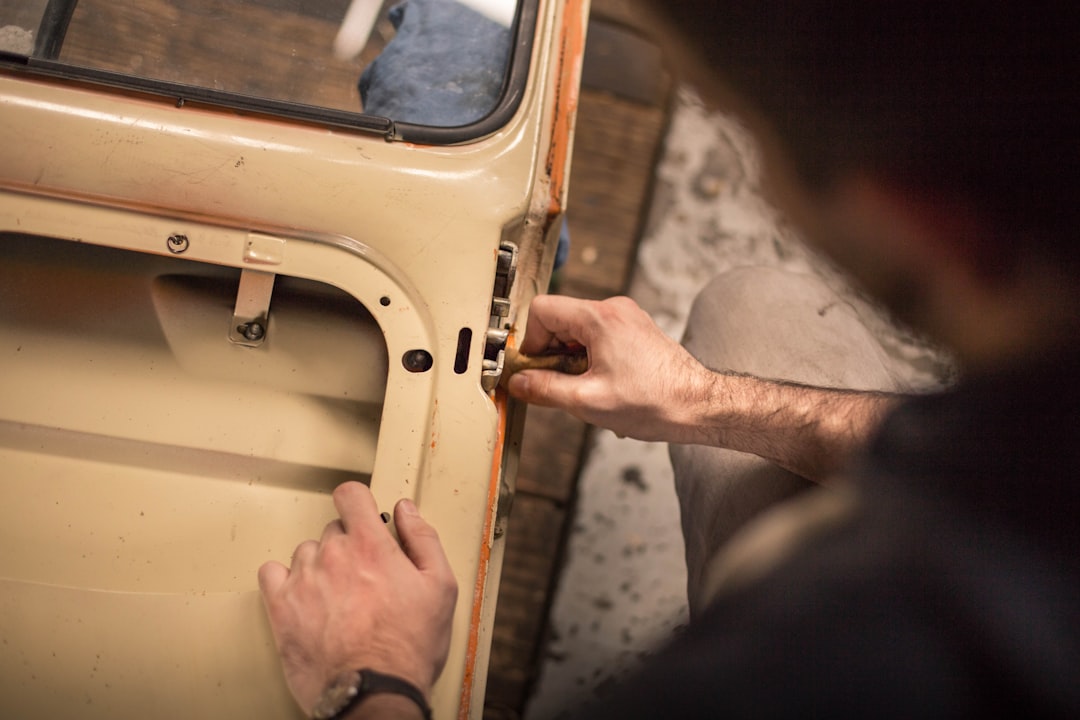Collision Repair Technician Kaihangarau Tinana Waka
Collision repair technicians repair and replace damaged body parts of cars and other vehicles.
Collision repair technicians may do some or all of the following:
- talk to customers about vehicle repairs, and estimate costs
- remove and replace parts to access repairs, or to allow for painting
- align and reshape damaged panels and frames
- carry out structural repairs using a chassis machine and 3D measuring equipment
- replace sections of vehicles and weld in replacements following manufacturers' instructions
- repair rust
- sand and prepare panels and parts for spray painting
- spray paint panels.
Useful Experience
Useful experience for collision repair technicians includes:
- experience with, and passion for, vehicles
- spray painting
- welding
- work in an automotive industry trade such as automotive engineering
- car grooming
- metal fabrication or car restoration
- sheet metal work.
Personal Qualities
Collision repair technicians need to be:
- motivated, responsible and honest
- careful, patient and accurate, with an eye for detail
- able to follow instructions and ask questions
- able to work independently
- good at problem solving and basic maths.
Skills
Collision repair technicians need to have:
- knowledge of metals and vehicle parts
- skills in repairing, fitting and preparing vehicle panels and frames
- an understanding of mechanics
- some knowledge of spray-painting techniques.
Collision repair technicians who run their own businesses need small business skills.
Conditions
Collision repair technicians:
- usually work regular business hours
- work in paint and collision repair workshops
- work in conditions that may be noisy and fumy, so they need to use protective equipment.
Subject Recommendations
No specific secondary education is required for this job, but many employers prefer apprentices to have at least three years of secondary education. Useful subjects include maths, construction and mechanical technologies, and English.
For Year 11 to 13 learners, trades academies and the StartUp, STAR and Gateway programmes are good ways to gain relevant experience and skills.
These programmes may help you gain an apprenticeship, but do not reduce the amount of time it takes to complete it.
Related Courses
Collision Repair Technicians can earn around $60-$75 per year.
Chances of getting a job as a Collision Repair Technician are good due to a shortage of people interested in this type of work.
Pay for collision repair technicians varies depending on qualifications and experience.
- Apprentices may start out on the training minimum wage, the minimum wage, or a little more.
- Panel beaters usually earn $60,000 to $75,000 a year.
- They may receive other benefits.
Very experienced collision repair technicians or those running their own business may earn more than this.
For those who are self-employed, income depends on the success of their business.
Source: Seek, 2023; and Trade Me, 2023.
Collision repair technicians may progress to set up their own business, or become assessors, tutors, or estimators.
Some collision repair technicians specialise in a particular aspect of the job, such as body work or painting.
Years Of Training
3-4 years of training usually required.There are no specific requirements to become a collision repair technician. However, a New Zealand Certificate in Collision Repair may be useful.
To become a qualified collision repair technician you need to complete an apprenticeship and gain one or both of:
- New Zealand Certificate in Collision Repair and Automotive Refinishing (Level 3)
- New Zealand Certificate in Collision Repair – Non-Structural Repair (Level 4).
MITO oversees collision repair technician apprenticeships.

 Bishop Viard College
Bishop Viard College